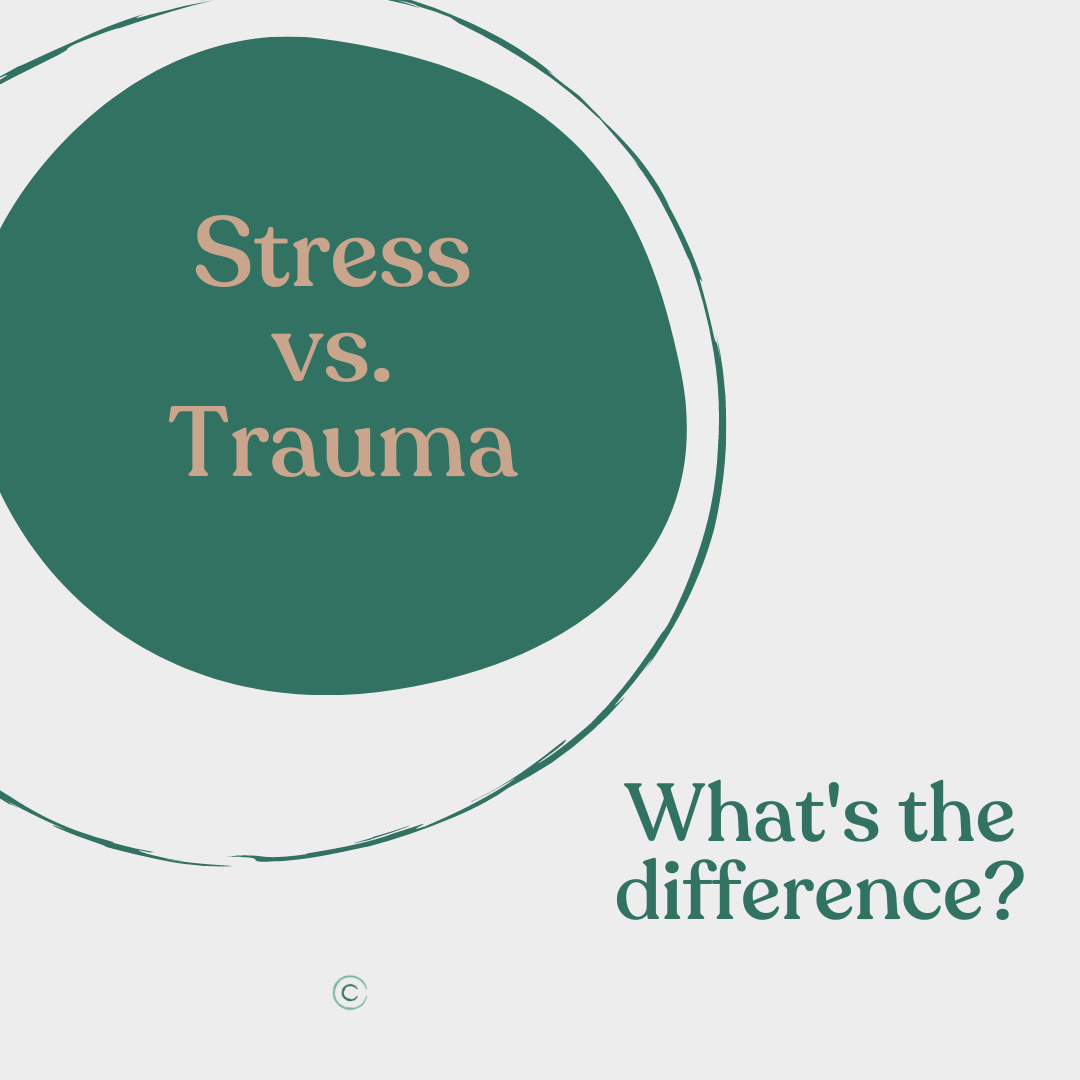What's the Difference between Stress and Trauma?
You’ve experienced stress. You might even feel stressed right now… If you’re feeling stress, then could you get Post Traumatic Stress Disorder?
Like every answer in the mental health world – it depends.
Stress is a natural and NECESSARY part of life. If we didn’t experience stress we wouldn’t meet deadlines, prevent ourselves and loved ones from walking into traffic, or make positive changes to help us live more fulfilling lives. Experiencing stress is a way that our bodies and minds communicate to us that we make necessary adjustments. Like most emotions, the experience of stress is a warning sign. Stress is like the signs that show you how fast you’re going when you’re entering a construction or school zone.
The sign is there to warn you to slow down and proceed with caution because of what’s ahead. Sometimes we see the signs and slow down, other times we ignore the signs and keep going fast. All of us have different tolerances for the amount of stress we can handle (aka how fast we can move through the slow zones without getting pulled over) – some can take more than others, and the same situation can be more or less stressful to you than me because we all have different thresholds. What is eventually true for all of us is that speeding in a slow zone will have consequences if you never slow down. Those consequences can lead to traumatic stress.
Stress is like a river.
Stress becomes toxic and potentially traumatic when we reach our threshold. Imagine a river. When it’s not raining much, the river moves along and might even be calm. You can grab an innertube and a floating cooler and spend a super fun afternoon floating down the river with friends.
After some rain, the water level rises and the currents of the river get faster. It would be too dangerous to ride an innertube now, but it would be super fun to go white water rafting.
At some point, the river can become so flooded that even the safest boat becomes too risky to travel down the river.
How stress becomes trauma
When we’ve been speeding through too many slow zones and the river is too flooded we can begin to shut down. It is common to try to avoid stress - people, situations, memories. When we can’t avoid those things we try to ignore them by cutting the connection between our minds and our bodies. The warning signs we were able to notice before - the speed signs, how high the waterline is in the river - become irrelevant and we try to carry on in all situations as though nothing is happening.
We are so good at this. Our brains are really powerful and it can become second nature to ignore the signs that we’re at stress capacity. We might even need to ignore the signs so we can meet the obligations in our life. Whether it’s from the buildup of lots of little stressors that add up over time, or we are flooded by a single big storm/event in our lives - stress becomes trauma when we stop heeding and noticing the warning signs.
What are the warning signs?
From my perspective as a trauma therapist, a lot of common issues people go to therapy for can be linked to the overwhelm of toxic stress that leads to trauma. Some of the most common symptoms of traumatic stress feel a lot like mental illnesses. The stress has overwhelmed them, converted to trauma, and frozen their ability to notice they’re stressed and it comes out as addiction, depression, or anxiety.
People often feel irritable, easily annoyed or angry, or unusually emotional, or uncharastically sensitive to feedback or critique. They usually avoid things that make them uncomfortable and may make decisions that don’t seem logical or rational because changing their patterns seems more terrifying than experiencing relief from the positive change. At this point, people are just trying to survive and have a hard time finding genuine joy or pleasure. People might turn to taking risks, substance use or drinking, or compulsive behavior just to feel anything positive or have a sense of control.
So… I think I might be experiencing some traumatic stress. What can I do about it?
If any of those warning signs resonated with you, know that there is hope! At any time, you can choose to get help and begin to counteract and reverse the impact of traumatic stress in your life. One of the best things you can do is work with a therapist that specializes in trauma. Even if you don’t identify with having experienced trauma, or you just feel “super stressed”, a trauma therapist has specialized training and experience to treat stress at the root of the problem, instead of trying to overcome the individual symptoms.
Something that anyone can do (and probably should be doing anyway) is to do activities or practices that require your brain and body to work together. Meditation, yoga, exercise, playing sports, drawing, working with clay, etc. All of these things require your mind to sync up with your body and physical sensations. You can do a lot of good for yourself by adding one or two of these activities to your life on the regular so that you can practice slowing down and noticing the cues and information that your body sends you.
Green Circle Collective would be delighted to work with you on your traumatic stress. I love working with folks that aren’t really sure if they have trauma, but know that they feel a lot of stress. I’ll work with you to create a plan to get you some relief from the stress and eventually get back to thriving. Sign up for a good-fit call today!


